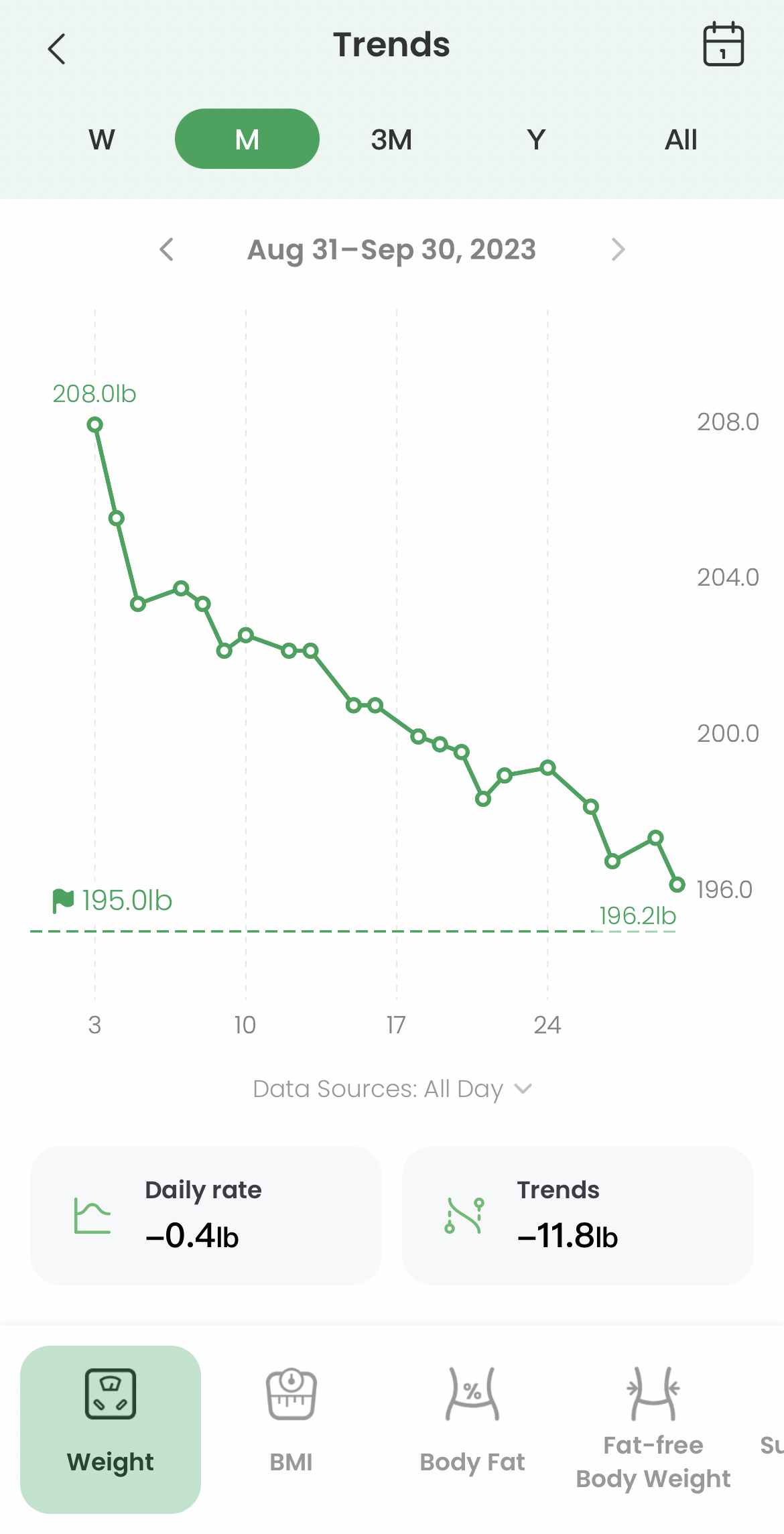
In today’s fast-paced world, maintaining a healthy lifestyle has become increasingly challenging. As a result, many individuals turn to various methods to monitor their dietary habits, with calorie counting being one of the most prevalent. Counting calories is not just about keeping track of what goes into your body; it has profound effects on both mental and physical well-being.
The Basics of Calorie Counting
Calorie counting involves tracking the number of calories consumed through food and beverages and comparing them to the calories expended through physical activity. Therefore, it’s a fundamental aspect of managing one’s weight and overall health. While it’s true that calories are not the sole determinant of health, they play a significant role in shaping our bodies and our minds.

Clients One Month Weightless Journey While Counting Calories
Physical Effects of Counting Calories
- Weight Management. Calorie counting serves as a crucial tool for weight management. Whether you want to lose, gain, or maintain your weight, understanding calorie intake is essential. By creating a calorie deficit (consuming fewer calories than you burn) or a surplus (consuming more calories than you burn), you can achieve your desired weight goals.
- Nutrient Awareness. Counting calories helps individuals become more aware of their nutrient intake. It encourages them to make healthier food choices, opt for nutrient-dense foods, and limit the consumption of empty calories from sugary and processed items.
- Portion Control. Calorie counting often leads to better portion control. Overeating can be a major contributor to weight gain, and by tracking calorie intake, individuals are more likely to eat appropriate portion sizes.
Mental Effects of Counting Calories
- Mindful Eating. Calorie counting fosters mindful eating. It encourages individuals to pay attention to what they eat, which can reduce mindless snacking and emotional eating. This mindfulness can lead to a healthier relationship with food.
- Goal Setting and Achievement. Setting calorie-related goals provides a sense of direction and achievement. Meeting these goals can boost self-confidence and motivation, helping individuals stay on track with their health and fitness journey.
- Enhanced Body Image. For some people, calorie counting can lead to a more positive body image. By understanding the role of calories in their diet, individuals can become more accepting of their bodies and focus on being healthy rather than striving for an unrealistic ideal.
Balancing the Scale: Avoiding Obsession
While counting calories offers numerous benefits, it’s essential to strike a balance and avoid becoming obsessed with the numbers. Overly fixating on calorie counting can have detrimental effects on mental health, potentially leading to eating disorders like orthorexia or anorexia nervosa. It’s crucial to remember that calorie counting should be a tool for empowerment, not a source of anxiety.
In conclusion, counting calories can be a valuable strategy for maintaining both physical and mental well-being. It empowers individuals to make informed choices about their diet, manage their weight, and develop a healthier relationship with food. However, it’s essential to use this tool mindfully, focusing on overall health rather than numbers alone. By striking the right balance, one can harness the power of calorie counting to achieve a happier and healthier life.



